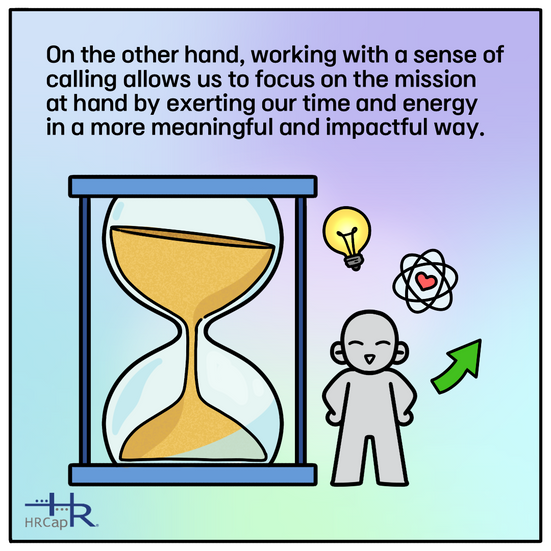[Expert Column] The Key to Overcoming Career Plateau is Finding Our Calling
- jonathanlee41
- Feb 15, 2024
- 3 min read
Updated: Mar 27, 2024
Written by Stella H. Kim
Published February 14, 2024
Search for the Calling, Not Just the Next Job or Career Growth

At one point or another, we have all seriously reconsidered our career path.
We get frustrated about why the task is never-ending even with daily overtime, why the monthly KPIs are never met despite putting in our best efforts, and why we are not considered for promotions with strong annual performance reviews. We often question whether this is the right job for us, whether we genuinely enjoy what we do, and whether our work is indeed fulfilling and meaningful.
A recent study by the National Bureau of Economic Research found that 74% of employees across industries, job functions, and levels have experienced a career plateau. According to Robert Half, 66% of employees have experienced more stagnation since the COVID-19 pandemic, and Oracle’s study also shows that 75% of global employees feel stuck in their professional growth.
Then what is a career plateau, and why does it happen?
A career plateau is when an individual feels stuck and believes there are no advancement opportunities, both laterally and vertically, within an organization. Lack of individual commitment or sufficient drive, limitations within the organization, changes in corporate structures from reorganizations and mergers, and unstable economic conditions may all lead to career plateaus. Discouragement, disengagement, and dissatisfaction with the job often follow as well.
However, a career plateau is largely a matter of personal perception and mindset. We can overcome a career plateau by intentionally defining and placing our meaning of work.
Work can be defined and approached in various ways. If we work to simply make money, then it is a job. If we prioritize learning and self-development, then it is a career. If we tie our core values and mission into our work, then it is a calling. Many prioritize being fairly compensated for one’s time and effort, while others focus on strengthening one’s subject expertise and personal branding through continuous learning. Some focus on finding purpose and a sense of fulfillment through their work.
According to the global talent pool survey conducted by HRCap, a Top 10 Global Executive Search & HR Consulting firm, those who experienced a career plateau reported their work life felt meaningless and repetitive, leading them to higher absenteeism and eventually resignation to focus on making job or career changes.
Indeed, we all need to be fairly compensated for our work as we need to make a living. We must also continuously learn and competitively grow to keep up with the ever-evolving market trends. However, working just to earn a wage and focusing only on the outcome rather than the actual progress can lead us to constant tension, anxiety, and dissatisfaction.
On the other hand, those who work with a sense of calling focus on the mission at hand exerting their time and energy in a more meaningful and impactful way. Their perception of retirement also differs, as many eagerly await to give back their expertise, experience, and assets to the greater society and the future generation. In other words, each person may treat the exact same role as a job, career, or calling, depending on their mindset.
If we are still experiencing a career plateau, let us pause to reflect and change our perspectives of why we engage in work. Determination to find and advance our calling will lead us to our ideal job, our fulfilling career, and ultimately – our vocation.
Stella H. Kim, SPHR
HRCap – SVP, Head of Americas & Chief Marketing Officer


























































Comments